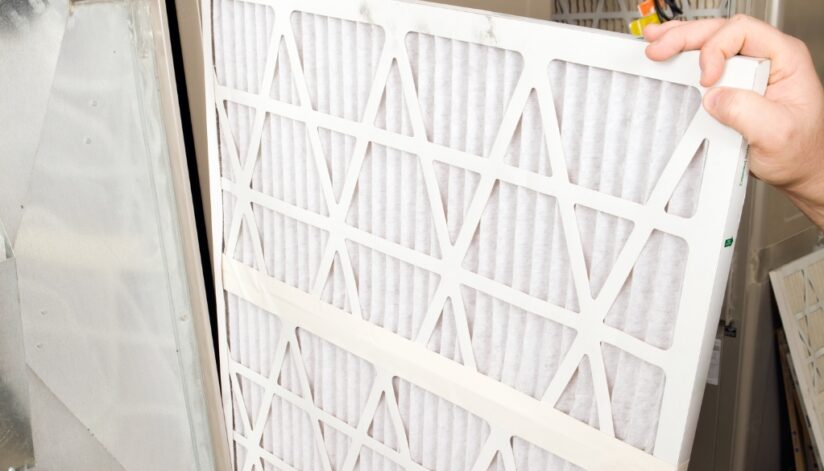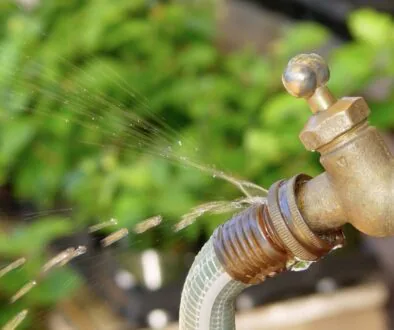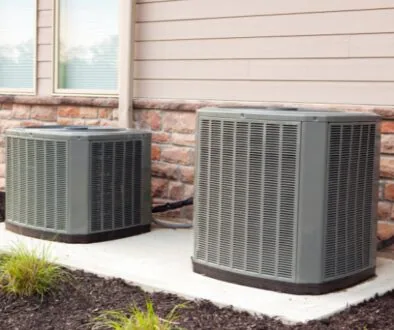Understanding The Different Types Of HVAC Filters And Their Benefits
Did you know that the type of filter you use can significantly impact the air quality in your home? Choosing the right HVAC filter is essential for ensuring that your system runs efficiently and that your family breathes clean, healthy air. At Niebuhr Plumbing, Heating, and Air Conditioning in La Crosse, Wisconsin, we’re committed to helping you make informed decisions about your HVAC system. In this blog post, our experts will compare various types of HVAC filters, including HEPA, pleated, and fiberglass filters, and explain which one might be best for your household’s specific needs.
What Is An HVAC Filter And Why Is It Important?
An HVAC filter is designed to trap dust, dirt, pollen, pet dander, and other airborne particles as air passes through your heating and cooling system. The primary purpose of the filter is to protect the HVAC system’s internal components from accumulating debris, which can reduce efficiency and lead to costly repairs. However, filters also play a crucial role in maintaining indoor air quality by removing contaminants from the air you breathe.
The efficiency of an HVAC filter is measured by its Minimum Efficiency Reporting Value (MERV) rating, which ranges from 1 to 16. The higher the MERV rating, the more particles the filter can capture. Understanding the different types of filters and their benefits can help you choose the best option for your home.
Types Of HVAC Filters
1. Fiberglass Filters
Overview: Fiberglass filters are the most basic and affordable type of HVAC filter. They are made from layered fiberglass fibers and typically have a MERV rating of 1 to 4. These filters are designed to protect your HVAC system from large particles like dust and debris but do not offer much in terms of improving indoor air quality.
Benefits:
- Low Cost: Fiberglass filters are inexpensive and readily available.
- Minimal Airflow Restriction: Because they are not very dense, these filters allow for easy airflow, reducing strain on your HVAC system.
Drawbacks:
- Limited Filtration: Fiberglass filters do not capture smaller particles like pollen, mold spores, or pet dander.
- Short Lifespan: These filters need to be replaced frequently, often every 30 days.
Best For: Homes with minimal indoor air quality concerns and no allergies or respiratory issues.
2. Pleated Filters
Overview: Pleated filters are made from cotton or polyester materials and are folded into pleats to increase the surface area for capturing particles. They typically have a MERV rating of 5 to 13, making them more effective than fiberglass filters at trapping smaller particles like pollen, pet dander, and mold spores.
Benefits:
- Improved Filtration: Pleated filters can capture a wider range of particles, including allergens.
- Longer Lifespan: These filters typically last longer than fiberglass filters, often up to 4-6 months.
- Balanced Airflow: While they offer better filtration, pleated filters still allow for adequate airflow.
Drawbacks:
- Higher Cost: Pleated filters are more expensive than fiberglass filters.
- Potential Airflow Restriction: Higher MERV-rated pleated filters can restrict airflow if not properly matched with your HVAC system.
Best For: Homes with pets, allergy sufferers, or those looking to improve indoor air quality.
Niebuhr’s Recommendation: MERV 8 Pleated Filters, which offer an excellent balance between filtration, efficiency, and airflow, are ideal for most homes in the Coulee Region.
3. HEPA Filters
Overview: High-Efficiency Particulate Air (HEPA) filters are the gold standard for air filtration, with a MERV rating of 17 to 20. They are designed to capture 99.97% of particles as small as 0.3 microns, including dust, pollen, mold spores, and even some bacteria and viruses.
Benefits:
- Maximum Filtration: HEPA filters are highly effective at removing nearly all airborne contaminants.
- Improved Air Quality: These filters are ideal for individuals with severe allergies, asthma, or compromised immune systems.
Drawbacks:
- Significant Airflow Restriction: Due to their density, HEPA filters can restrict airflow, making them unsuitable for standard residential HVAC systems without modifications.
- Higher Cost: HEPA filters are more expensive than other filter types and may require professional installation.
Best For: Hospitals, clean rooms, and homes with individuals who have severe respiratory issues. However, they are not typically recommended for standard HVAC systems without modification.
4. Electrostatic Filters
Overview: Electrostatic filters use static electricity to attract and capture particles. These filters can be either disposable or washable and typically have a MERV rating of 8 to 10. They work by charging airborne particles as they pass through the filter, causing them to stick to the filter material.
Benefits:
- Reusable Options: Some electrostatic filters can be washed and reused, making them more cost-effective over time.
- Good Filtration: These filters capture a wide range of particles, including allergens and pet dander.
Drawbacks:
- Maintenance: Washable electrostatic filters require regular cleaning to maintain their effectiveness.
- Potential Airflow Restriction: Similar to pleated filters, higher MERV-rated electrostatic filters can restrict airflow.
Best For: Homes with pets or individuals with mild to moderate allergies, looking for a reusable filter option.
5. Activated Carbon Filters
Overview: Activated carbon filters are designed to remove odors and volatile organic compounds (VOCs) from the air. These filters are typically combined with other types of filters, like pleated filters, to provide both particle and odor control.
Benefits:
- Odor Removal: Activated carbon filters are highly effective at removing unpleasant odors from cooking, pets, and smoke.
- VOC Reduction: These filters can also help reduce VOCs, which are harmful gases emitted by certain household products.
Drawbacks:
- Limited Particle Filtration: While excellent for odor control, activated carbon filters do not capture particles as effectively as pleated or HEPA filters.
- Higher Cost: These filters are more expensive due to the activated carbon component.
Best For: Homes where odor control is a priority, such as those with pets or smokers.
The Trion Air Bear Brand And Plasma Air Cleaners
Niebuhr Recommends: MERV 8 Pleated Filters
For most homes in La Crosse and surrounding areas, a MERV 8 pleated filter offers a great balance between filtration, efficiency, and maintaining proper airflow. These types of HVAC filters are excellent for capturing common household particles, such as dust, pollen, and pet dander, without putting too much strain on your HVAC system.
Trion Air Bear
At Niebuhr, we also offer the Trion Air Bear brand of filters, which are known for their high-quality construction and excellent filtration capabilities. These filters are available in various MERV ratings, allowing you to choose the level of filtration that best suits your needs.
Plasma Air Cleaners
For those looking to take air quality to the next level, consider Plasma Pure air cleaners. These advanced systems use ionization technology to neutralize airborne particles, odors, and even certain pathogens, making them an excellent addition to any home with high air quality demands.
Choosing The Right Filter For Your Home
Selecting the right types of HVAC filters is crucial for maintaining both the efficiency of your system and the quality of the air you breathe. For most homeowners in the Coulee Region, a MERV 8 pleated filter is recommended. However, if you have specific air quality concerns, such as allergies, odors, or the presence of VOCs, you may want to explore other options like HEPA filters or activated carbon filters.
Trust Niebuhr For Your HVAC Needs
At Niebuhr in La Crosse, Wisconsin, we’re committed to helping you choose the right filter for your HVAC system. Our experienced technicians can also provide guidance on advanced air cleaning solutions, like the Plasma Pure air cleaner. Contact us today at (608) 782-1700 to learn more about how we can help you maintain a healthy and efficient home.




